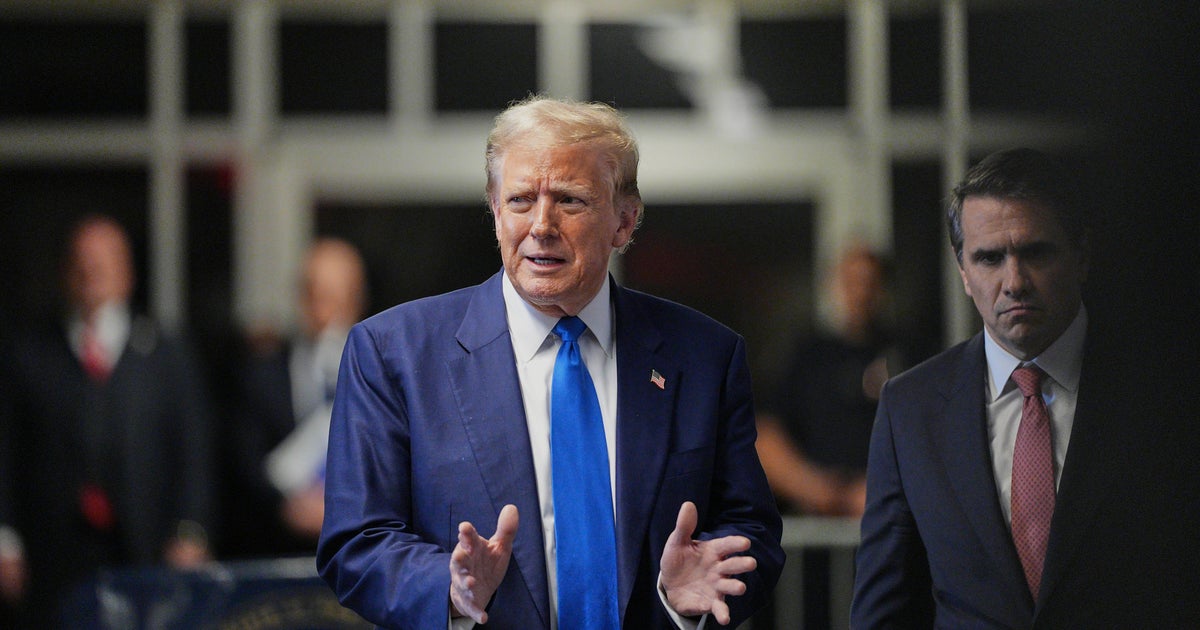How a "border adjustment tax" would affect Americans
The so-called border adjustment tax has been described as “the most complex provision on the table” and a “a vast hidden sales tax.” But what is it exactly, and how would it affect Americans?
First, this is not the same levy as the Trump border tax the new president has threatened to impose on U.S. manufacturers selling goods in the U.S. that they made overseas.
Rather, the idea stems from Republican lawmakers’ desire to revamp the corporate tax code, which they criticize as too onerous for U.S. companies, given the stated tax rate of 35 percent. Even though U.S. corporations use loopholes and other tax breaks to lower their effective rate to 10.6 percent, GOP lawmakers are pushing for an overhaul they say would provide tax relief to many businesses.
That has opened the door for policymakers to consider the border adjustment tax, an approach that would provide tax relief for U.S. manufacturers while creating higher taxes for imported products that are bought within America’s borders. The proposed tax is called a “destination-based tax” because products would be taxed based on where they’re sold rather than where they’re made.
Critics say the current system hobbles U.S. manufacturers that export their goods because they pay corporate taxes to Uncle Sam and are then taxed by other countries when they import their products.
“This discrepancy has encouraged manufacturers to shift production out of the U.S.,” said Will Denyer of Gavekal Research in a note about the proposed reform. “In effect, the U.S. has worked with other governments to subsidize U.S. consumption of foreign-made products, at the expense of U.S. producers (and of foreign consumers).”
He added, “Border tax adjustments would go a long way towards ending this anomaly.”
While that would seem to appeal to President Donald Trump, given his mission to revive American manufacturing, he recently told The Wall Street Journal the idea was “too complicated.”
“Anytime I hear border adjustment, I don’t love it,” Mr. Trump told the newspaper earlier this month. “Because usually it means we’re going to get adjusted into a bad deal. That’s what happens.”
Based on the president’s criticism of the idea, Goldman Sachs (GS) economist Daan Struyven said he now believes there’s only a 20 percent likelihood that the border adjustment tax will be adopted, down from 30 percent.
But that doesn’t mean you can ignore it. Given the backing it has in the Republican House, it’s worth keeping an eye on the proposal. So here are five things to know about the border adjustment tax.
How does it work? Based on the plan outlined by the House GOP, the border-adjustment tax would lower the corporate tax rate to 20 percent and exempt businesses from paying taxes on profits they earn overseas. Additionally, domestically produced products that are exported would be exempt from tax. But imported products or services would be taxed when they’re bought or consumed in the U.S.
In cases such as a U.S. automaker buying parts from an overseas supplier to use in its Mexican factory, that transaction wouldn’t be taxed because the goods aren’t being brought into the U.S. It’s only when the car is shipped to the U.S. and sold to an American consumer that it would be taxed.
As the independent Tax Foundation noted, the plan “would be solely focused on raising revenue from business transactions from sales of goods in the United States.”
Why does the GOP want it? The plan would shift taxes to where a company makes a sale, instead of where profits are booked. That means companies wouldn’t have an incentive to shift profits outside U.S. borders, which some believe has created an incentive for American companies to create “tax inversions.”
Tax inversions happen when a U.S. company merges with a foreign business and shifts its corporate headquarters to the foreign country with a lower corporate tax rates. The border-adjustment tax would also raise revenue of an estimated $1 trillion over a decade, according to the Tax Foundation.
How would it affect U.S. consumers? Americans would pay more for imported goods and services, ranging from clothing manufactured in Bangladesh to gasoline bought at the pump. That’s a sticking point for some lawmakers and consumer advocates, given that it would likely hurt low- and middle-income Americans more than wealthier consumers.
Former Indiana congressman David Macintosh, a Republican, wrote in Investors Business Daily this month that the tax “will be like a vast hidden sales tax that drives up the cost of purchases.”
Do U.S. corporations like the idea? Many companies that rely on importing goods from outside the U.S. are voicing their concern about the idea. Politico reported that Target (TGT) CEO Brian Cornell recently lobbied against the proposal. Retailers and the auto industry are among those that are expressing concern because many of them rely on manufacturing outside the U.S. The tax would likely increase their costs and boost the prices they would have to charge consumers.
Do simpler alternatives exist? Mr. Trump isn’t alone in expressing concern that the tax is too complex. It’s possible that he’ll continue to push his idea for large tariffs levied against imports from Chinese- and Mexican-produced products.
“As for the Republicans, they would be sent back to the drawing board since the border adjustment tax is the heart of their corporate tax overhaul plan,” wrote Kathy Bostjancic, head of U.S. Macro Investor Services at Oxford Economics, in a research note. “The devil is in the details.”



